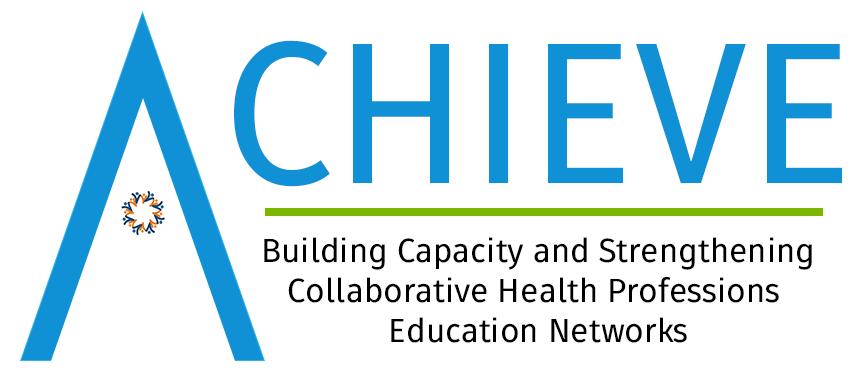

ACHIEVE Launch Event
Revolutionising Collaboration in Health Professions Education
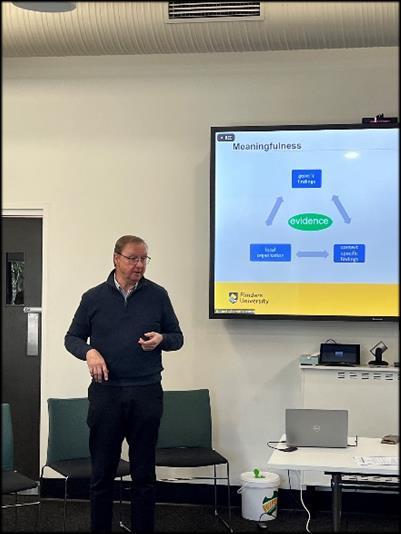
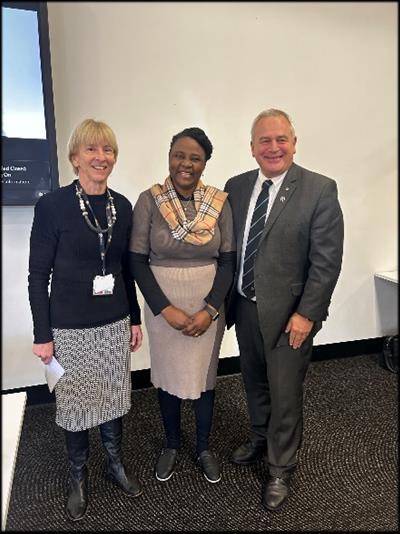 By Luci Youman
By Luci Youman
On the 20th of July 2023, history was made as the dynamic Academy for Collaborative Health Interprofessional Education and Vibrant Excellence (ACHIEVE) was born This network is dedicated to forging a path of innovation and excellence in Health Professions Education (HPE). The Master of Ceremony (MC) Professor Jane Bleasel, Dean of the Joint Medical Program and Head of School, Medicine and Public Health introduced the dignitaries who gathered to witness this momentous occasion, including the Vice Chancellor (VC) of the University of Newcastle, Professor Alex Zelinsky.
The VC declared the event officially opened noting that ACHIEVE sets the pace and lays the foundation for interprofessional collaboration and leadership in HPE. The Director of ACHIEVE and Professor of Medical Education, Bunmi Malau-Aduli enlightened the audience on ACHIEVE’s mission, invoking the timeless wisdom of Helen Keller’s words: "Alone, we can do so little; together, we can do so much."
The MC then introduced Professor Lambert Schuwirth from Flinders University, South Australia, a luminary in the HPE field and Keynote Speaker, who emphasised that HPE is inherently multi-disciplinary, requiring collaborative approach to advancing research. The critical steps for effective collaboration include understanding the nuances of multi, inter, and transdisciplinary research; building a network of scholars and practitioners; engaging with communities; and passionately advocating for synergistic efforts from all relevant stakeholders. Professor Schuwirth further stated that HPE research should not only be meaningful, but also of the highest quality, scientifically relevant, and timely. To thrive and flourish, HPE research also needs to be well resourced and visible, extending beyond the confines of formal publications to the sprawling realm of social media.
The event culminated with a panel discussion moderated by Professor Darrell Evans. The discussion panel from diverse health professions backgrounds included Professors Jenny May, Suzanne Evans, Charlotte Rees and Brian Jolly. Drawing from their rich personal experiences and professional expertise, the panellists discussed innovative approaches in HPE.
The birth of ACHIEVE signalled the promise of a dynamic interprofessional network of educators for a transformative journey capable of reshaping the future of healthcare
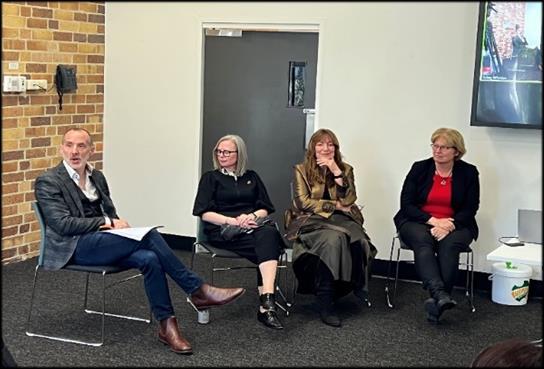
If you would like to watch the recording of the Launch Event, click here
Can I watch the recording?
Yes! Please find the link for the Zoom recording here.
Health Professions Education Updates
Hunter New England Local Health District and University of Newcastle First Health Innovation Living Lab opens in the Hunter
The Hunter’s first purpose-built Health Innovation Living Lab, located at John Hunter Hospital, has been officially unveiled to the community, supporting greater health research and innovation in the region.
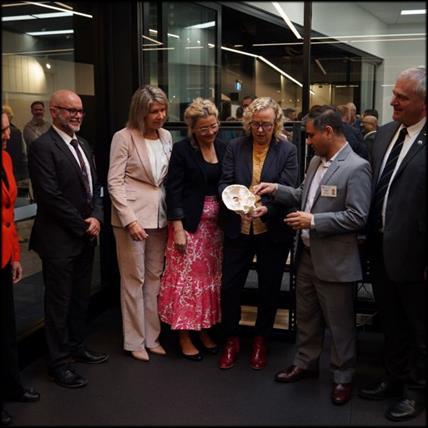
NSW Health Minister Ryan Park said the lab has been delivered in partnership between Hunter New England Local Health District and the University of Newcastle.
“This $2.3 million lab is in addition to the NSW Government’s $835 million John Hunter Health and Innovation Precinct. The Precinct will enhance facilities and provide additional capacity to meet the demands of the Greater Hunter, New England, and northern NSW regions,” Mr Park said.
“The lab will offer opportunities for researchers, students, and industry to embed their work inside one of the busiest teaching hospitals in Australia and partner with clinicians to have a real impact for our rural and regional communities.”
To read the full article, click here
School of Nursing and Midwifery – University of Newcastle
A Midwife's Passion is Born
Agatha was 11 years old and living in her home country, Nigeria, West Africa, when she learnt first-hand what a midwife was.
After relocating to Australia in her twenties, Agatha completed a Bachelor of Nursing and Diploma in Midwifery and has been working as a registered midwife at Blacktown Hospital ever since.
Now a seasoned senior midwife, with more than 20 years’ experience, Agatha has lost count of the number of babies she has delivered but owns a record of 84 deliveries in one year.
Determined to offer mothers the very best support and care, Agatha said she was eager to learn more about quality improvement and clinical leadership.
“One of my colleagues mentioned she was doing Master of Midwifery Studies at the University of Newcastle,” Agatha said.

“I looked up the course on the University website.
“It was exactly what I wanted to do.”
To read Agatha’s story, click here
University of New England Caution Urged on Medical AI
Artificial intelligence is often touted as a potential medical marvel. But one UNE researcher believes – at least for now – that the results are not living up to the hype.
Associate Professor Deborah Apthorp from UNE’s School of Psychology, a specialist working to improve the diagnosis of Parkinson’s disease, is urging caution on the use of machine learning.
“AI has a lot of promise for use in medicine, but we need to be cautious about the premature adoption of AI models,” she said. “There is potential for AI to create a false sense of confidence, and this may severely impact the health of patients.”
Apthorp has been collaborating with colleagues from Canberra Hospital and the Our Health in Our Hands group at the Australian National University to test how effectively machine learning can be used to detect Parkinson’s disease, the second most common neurological disease in Australia. To read the full article, click here
School of Health Sciences – University of Newcastle
Foundations of Health Professions Education Research: Launching Professor Charlotte Rees’ Latest


ACHIEVE is excited to announce the latest publication from the Head of School of Health Sciences at the University of Newcastle, Professor Charlotte Rees – ‘Foundations of Health Professions Education Research’.
As stated by Professor Rees and her colleagues “educating healthcare students and professionals is critical to the long-term improvement of human health. Health professions education research (HPER) is a growing field with enormous potential to enrich the education of medical, nursing, and allied health students and professionals. There is still, however, an urgent need for a textbook focusing on the foundations of HPER that will help new and existing HPE researchers ground their work in research philosophies, evidence-based methodologies, and proven best practice”
We look forward to launching Professor Rees’ HPER book at the upcoming ACHIEVE Symposium scheduled for Friday October 20, 2023. For more information on this event, click here
Professional Development Series - Share and Enhance Educator Knowledge (SEEK)
ACHIEVE SEEK Session - Unlocking the Learning Potential: Harnessing the Impact of Assessment in Health Professions Education
On July 26, 2023, Professor Bunmi Malau-Aduli presented ACHIEVE’s first SEEK Session. This immersive session was aptly titled “Unlocking the Learning Potential: Harnessing the Impact of Assessment in Health Professions Education”.
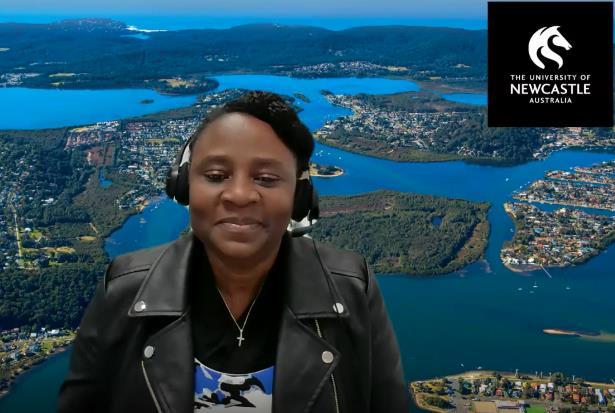
Professor Malau-Aduli addressed the fundamental question of why assessment matters in health professions education and how assessment is influential in shaping students’ overall learning experience. She also explored a range of useful assessment formats. She emphasised that in designing an assessment schedule, it’s important to ensure that it is fit for purpose. Bunmi also delved into the challenges of assessment and expounded the role of assessment in fostering application of knowledge to clinical practice, the relevance of quality and timing of feedback on learning as well as standardisation of processes for quality assurance of assessment.
Overall, this was an intriguing session, that gave ACHIEVE members the opportunity to engage in discourse and gain perspective on the value of assessment in health professions education.
To watch the recording, click here.
Professional Development Series - Share and Enhance Educator Knowledge (SEEK)
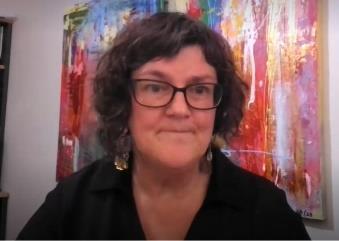
ACHIEVE SEEK Session - Recognising the Art of Teaching: Unveiling Excellence in Teaching Awards
ACHIEVE’s second SEEK session held on August 30, 2023, was presented by Professor Stuart Wark (University of New England) and Dr Meredith Tavener (University of Newcastle).

The session titled ‘Recognising the Art of Teaching: Unveiling Excellence in Teaching Awards’ provided attendees with insights on what the Australian Awards for University Teaching (AAUT) entails and provided valuable insights into the application process.
The presenters shared their personal journeys and experiences and showcased the impactful teaching practices that set award-winning educators apart. The session unveiled the secrets to crafting a compelling award application and inspired attendees to consider how they can showcase their own teaching excellence and reach new teaching career heights
To watch the recording, click here
University of Newcastle Department of Rural Health
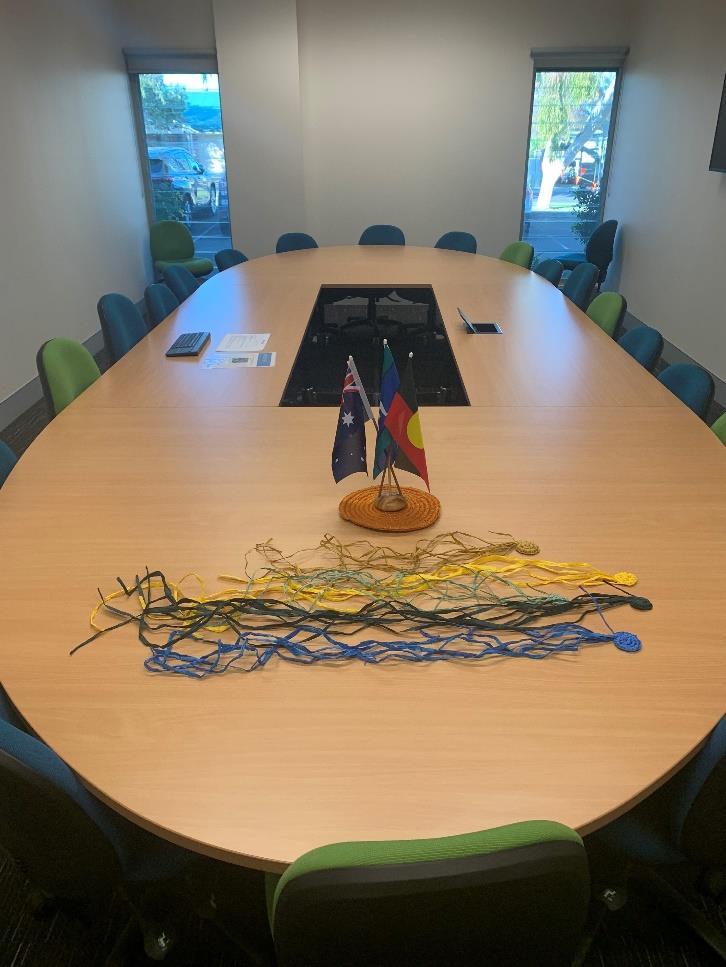
University of Newcastle's Department of Rural Health Teaching and Learning Day
By Dr Susan HeaneyThe University of Newcastle's Department of Rural Health recently hosted its annual Teaching and Learning Day on July 31st. With a focus on "Critical Reflection," the event brought together around 40 staff members from across all our sites to both the Manning Education Centre (Taree) and the Tamworth Education Centre for a day of learning and sharing.
The day began with a keynote address by Professor Charlotte Rees, an expert in health professions education. Her talk set the stage for discussions about critical reflection and its impact on teaching practices. The event continued with a panel discussion featuring Professor Rees, Professor Bunmi Malau-Aduli, and Dr. Arron Veltre, where they shared their teaching experiences and insights on using reflection to improve teaching.
Professor Malau-Aduli then led interactive case studies that demonstrated practical applications of reflective techniques.
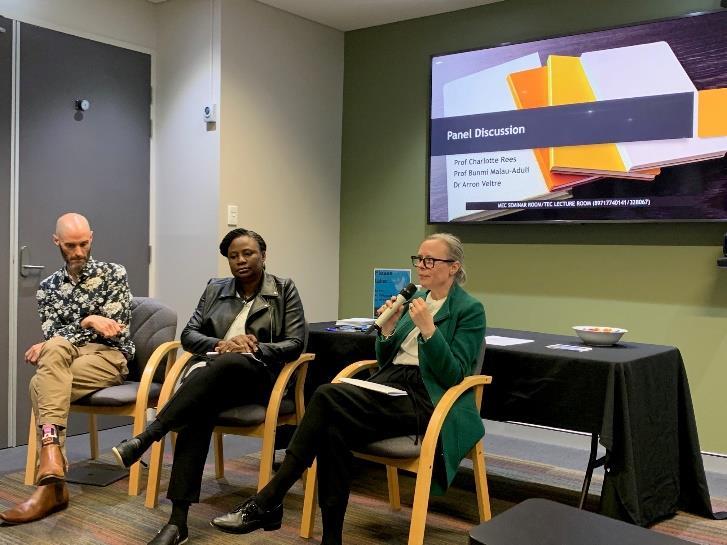
One highlight of the day was the choice of five reflective workshops. These workshops gave educators the chance to explore different ways to reflect on their teaching approaches. Ranging from cultural perspectives on reflection to creative methods like crafting and writing 50-word stories, these workshops encouraged participants to think outside the box. Other workshops explored using photos to trigger reflection and engaging in peer discussions.
The Teaching and Learning Day wasn't just about workshops and lectures; it provided a unique opportunity for educators to connect with colleagues they might not interact with regularly due to our varied geographical locations. This networking aspect added a valuable dimension to the event.
The organisers expressed their gratitude to Charlotte Rees and Bunmi Malau-Aduli for their contributions. Their involvement helped make the event insightful and practical. By focusing on critical reflection and providing interactive workshops, the Teaching and Learning Day demonstrated the dedication of the Department of Rural Health to the scholarship of teaching and learning and improving teaching practices through thoughtful analysis and collaboration.
Featured Topic
New Accreditation Standards for Medical Schools: Hard Quiz
by Professor Brian JollyOn January 1, 2024 a new set of standards will be put in place for medical schools that will need to be met to extend schools’ accreditation for the provision of qualifications that enable students to function as a doctor, albeit under supervision. These standards will significantly expand the workload of institutions delivering medical degrees. The standards are accompanied by a new fleet of graduate outcomes in four (4) domains of medical work.
Probably the most important of these is the need for students to learn culturally safe clinical practice as defined by the Aboriginal and Torres Strait Islander Health and Cultural Safety Strategy Group in Australia. This is (for Australia, the one for Aotearoa is different) “Culturally safe [practice] is the ongoing critical reflection of health practitioner knowledge, skills, attitudes, practising behaviours and power differentials in delivering safe, accessible and responsive healthcare free of racism” (AMC, 2023, p7).
Given the national current discussion around the Voice, reaching this state, with or without the Voice, is going to be HARD!
Key Points
• New set of accreditation standards for medical schools in 2024
• One of the most crucial aspects of these new standards is the emphasis on culturally safe clinical practice
• Given that the definition of cultural safety is created by First Nations people, it will necessitate a greater involvement and louder voices from these communities in the training and support of medical students.
• Education providers will need to demonstrate not only that they are instilling culturally safe capabilities in students but also that they are implementing a culturally safe curriculum throughout the entire duration of the medical program
Because the definition, and hence the recognition of what cultural safety looks like, has been created by First Nations people, for First Nations people, this will entail much louder voices of these peoples in the training and support of medical students. It will also entail education providers producing evidence, not only that they are instilling these capabilities in students, but that they are operating a culturally safe curriculum across the whole length of the medical programme.
Places like UON and UNE that have had a history of engaging with and supporting Aboriginal and Torres Strait Islander students will have a head start in this process, as will many other Universities with Indigenous Health Units, and cultural edifices like the Wollotuka Institute. However, many smaller providers may need to collaborate with other or larger ones to be able to ‘get up to speed’. And this may apply in other areas where standards are being updated.
For accreditation authorities like the AMC, training is being developed for assessors to be able to recognise when cultural safety is tangibly affecting the educational pathways, and conversely when the programme is at risk of not delivering this component effectively. Hard evidence is key!
1. Standards for Assessment and Accreditation of Primary Medical Programs. Available at: https://www.amc.org.au/wp-content/uploads/2023/08/AMC-Medical_School_Standards-FINAL.pdf

2. Review of Accreditation Standards for Primary Medical Programs (medical school standards review)
Available at: https://www.amc.org.au/accredited-organisations/review-of-accreditation-standards-forprimary-medical-programs/
Student Stories
Joint Medical Program
Pathways Program
HPE Pathways Across the World
By Peter BaeeEarlier this year I completed my HPE pathways placement in a gorgeous town called Tübingen, which is nestled 30kms south of Stuttgart, Germany. I rotated between 8-9 facilities throughout the town, learning about various forms of simulation (high-fidelity, part-task trainers, communication and more) over a variety of disciplines. All the educators were so welcoming and taught me a lot about their individual fields and how to run simulation-based sessions. I was particularly impressed with their video-feedback setups which made every session immersive.
A local professor, Prof. Dr. Anne Herrmann-Werner and her family were kind enough to host me. This made the trip extra special as I would finish my placement for the day and come home to spend time with her and her family, learning German and about their culture, along with teaching a little bit of English to their lovely children.
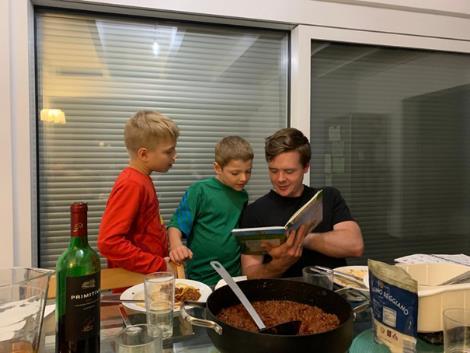
I learned a lot about simulation in HPE, German culture and myself during this trip and am very thankful for everyone that made it possible.

University of Newcastle Department of Rural Health Students Insight into the Importance of Professional Collaboration
By Luci YoumanTaree medical and health students were lucky enough to be a part of a valuable collaborative workshop held at the Manning Education Centre last month. The students had the opportunity to register and join the workshop which was based on the Clinical Error Interprofessional Learning Module.
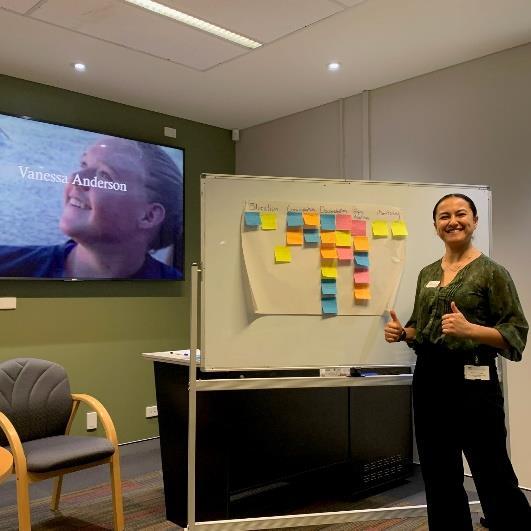
An advantageous experience for future efforts, the students were assigned real case studies that had catastrophic outcomes due to clinical error. Organised into teams, they were given the task to discuss the case, zero in on where the errors occurred and suggest actions, policies or guidelines that could prevent the same error occurring in the future.
Through this discussion and learning, the teams came to a clear conclusion that the minimisation of risk comes from communicating with each other, the understanding of intersectional policies, and quality education. The workshop paid homage to the fact that bouncing ideas off and collaborating with different health professionals makes for a successful medical career.
Alumni Story
Dr Cale Lawlor
Senior Policy Manager for Global Public Health, European Public Health Alliance (EPHA)
Dr Cale Lawlor is an internationally established public, global and environmental health researcher who has specialised in medicine, harm reduction, global health policies, and environmental health concerns.
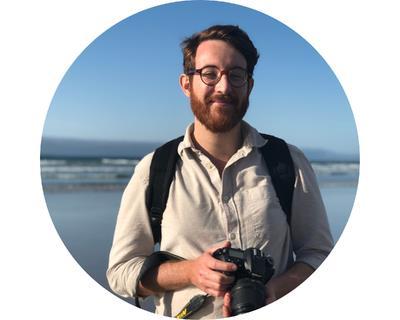
During his studies, Dr Lawlor was a part of the Joint Medical Program (JMP) and he believes this connective experience was a very beneficial professional component.
“Anything based off collaboration in interdisciplinary work is one of the most extremely valuable things you can do. I think anything done in silos is prone to failure to a degree.”
Beginning his career in Lismore after graduating from a Bachelor of Medicine at the UNE, Dr Lawlor went on to complete his Masters of Public Health at UoN. His dedication and enthusiasm for travel saw him travelling the world over the coming years. He has developed his profession in Ireland, Greece, Georgia, and now Belgium. He cites his possible inspiration for global health coming from a placement in the fifth year of his degree called the Health Equity Selective, in which students had the opportunity to choose an international placement.
“I went to a remote village in Mongolia. It had no Internet, no running water, no toilets or showers. Everyday I had to go to the hospital which was just sort of two rooms... I think that’s something I’m fairly proud of.”
At a relatively young age in the medical industry, Dr Lawlor brings about a sort of worldly and modern view on the culture in the field. After years of immersing in different disciplines, he says,
“The options coming out of university are very broad... there is just such a great diversity of things and I think people feel pressured to go down a very tight pathway, but people can carve their own adventures.”
To read or watch Dr Lawlor’s full interview, click here.
Community Profile
Professor Kichu Nair
Professor of Medicine and Associate Dean, School of Medicine and Public Health, University of Newcastle
Professor Kichu Nair is a Professor of Medicine at the School of Medicine and Public Health (SMPH). He is also the Director of the Centre for Medical Professional Development within the Hunter New England Health District.
Before his committed and diverse career in medicine reached the pinnacle it is at today, Professor Nair spent years in the medical field before joining the Newcastle Medical School and becoming a conjoint lecturer.
Professor Nair’s research has been internationally recognised, one of his achievements includes developing a workplace-based assessment for international doctors to gain their Australian license.
“When we started [in 2010], it was the first of its kind in the world, now there are 22 centres doing this sort of assessment across the country. What we have done has also been emulated overseas so I think that’s a very interesting development.”
His career is also predominantly focused on dementia research, in which he has become director for the nationally funded, ACCORD program.
Another area Professor Nair has been passionate about has been teaching and improving the value of teaching in the Joint Medical Program. In 2017, he started the Academy of Clinical Educators, which 200 people have now graduated from. His professional disposition when approaching teaching, is the importance of interactive and bedside learning.

Want to connect?
(02) 4985 3313
kichu.nair@newcastle.edu.au
https://www.newcastle.edu.au/profile/ kichu-nair
“I think, as people said hundreds of years ago, the facts are locked up in the patient...The student should go to the patient to learn medicine.”
To read or watch Professor Nair’s full interview, click here.
Clinical School Profile
Tablelands Clinical School
Armidale, NSW
Clinical Dean: A/Prof Liz Cotterell
The Tablelands Clinical School (TCS) located in Armidale has modern education and research facilities and a close-knit academic team available to support students. The clinical school is collocated with Armidale Rural Referral Hospital and has a long-standing partnership with the Hunter New England Local Health District.
Our Students
Clinical School Update: Community Outreach and UNE Open Days
With an aim to increase rural based health professionals, the TCS is engaged in Community Outreach activities such as Teddy Bear Clinics and UNEs Open Day.
Community Outreach is a great opportunity to provide immersive experiences for diverse groups. Teddy Clinics usually run with preschool or kindergarten aged children, increase both student exposure to the younger children and other allied health professionals, and also helps increase the children’s comfort levels with health professionals.
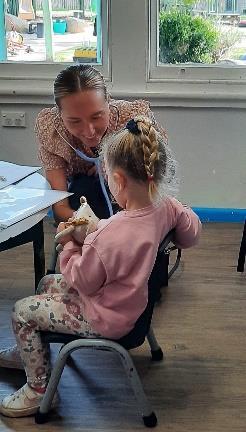
Open Day is an opportunity for high school students to visit UNE and Armidale and interact with the staff and students to find out more about the various areas of University Life. The TCS hosts bus tours from the main campus, and the students are involved in facilitating stations, to showcase our dynamic learning environment.
The Tablelands Clinical School caters for around 22 students in years 4 and 5 combined. These small numbers mean more one on one student centred teaching. The smaller numbers also increase the likelihood of hands-on exposure to patients, and experience in preparing patients for retrieval can be gained.
They offer a distinct, bespoke experience for students in their 3rd, 4th and 5th year of the JMP Program. Supported by the School of Rural Medicine, the TCS has a focus on hands on learning, whether that be in Year 3 skills sessions, ultrasound skills, or in the Critical Care sims, on offer weekly for Year 4 and 5 students.

Our Facilities
The TCS building, co-located with the hospital, has multiple teaching spaces, and well-equipped simulation labs. We have state of the art ultrasound machines dedicated for teaching. There is a student study area with kitchenette and library.
Accommodation is provided in 4-bedroom houses, with at least 2 bathrooms, with one house across the road from the TCS. White goods, internet, and privacy in the form of lockable bedrooms comes with all accommodation, and houses are fully equipped with kitchen and lounge room appliances.
There is access to all University of New England student facilities, such as a gym, pool, library, social spaces, and student support services such as counselling and a medical centre.
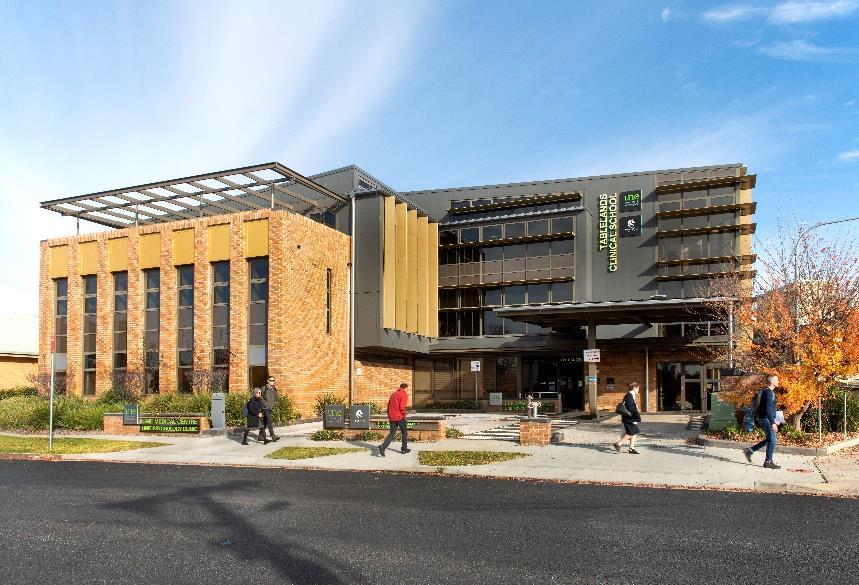
Want to know more about the Tablelands Clinical School?
Check out this link!
Our Research
Articles from members
• Inequitable treatment as perceived by international medical graduates (IMGs): a scoping review | BMJ Open
• Delivering introductory physiotherapy clinical placements incorporating simulated learning experiences in rural settings | AJRH
• Improving medical students’ interpersonal communication skills; applying cochrane review evidence | PEC
• Perceptions of medical students and their facilitators on clinical communication skills teaching, learning, and assessment | Front Public Health
Recent HPE Research
• Medical students' experiences working with midwives on NHS labour wards: a qualitative study | BJM
• Effects of simulation with problem-based learning (S-PBL) on nursing students’ clinical reasoning ability: based on Tanner’s clinical judgment model | BMC
• Indigenous strengths-based approaches to healthcare and health professions education –Recognising the value of Elders’ teachings | Health Education Journal
Have you published about research and scholarship in Health Professions Education recently? Let us know!

Do you want to be more involved with research?
ACHIEVE offers members the opportunity to bring their expertise to the community by assisting other researchers with peer reviewing and mentoring. If this is something you would like to be a part of, click here.
ACHIEVE is also introducing five research and scholarship sub-groups that will be focusing on different areas of interest in the community. Each group will be led by a well-respected and knowledgeable researcher in the HPE community. These groups are:
• Innovative Teaching & Learning lead by Dr Richard McGee (UON)
• Assessment & Feedback led by Professor Stuart Wark (UNE)
• Professionalism and Leadership led by Dr Miriam Grotowski (UON)
• Graduate Outcomes led by Dr Katie Wynne (UON)
• Interprofessional Learning and Wellbeing led by Ms Simone Perry
We encourage all members to join in on these research initiatives. If you are interested, please fill out this form
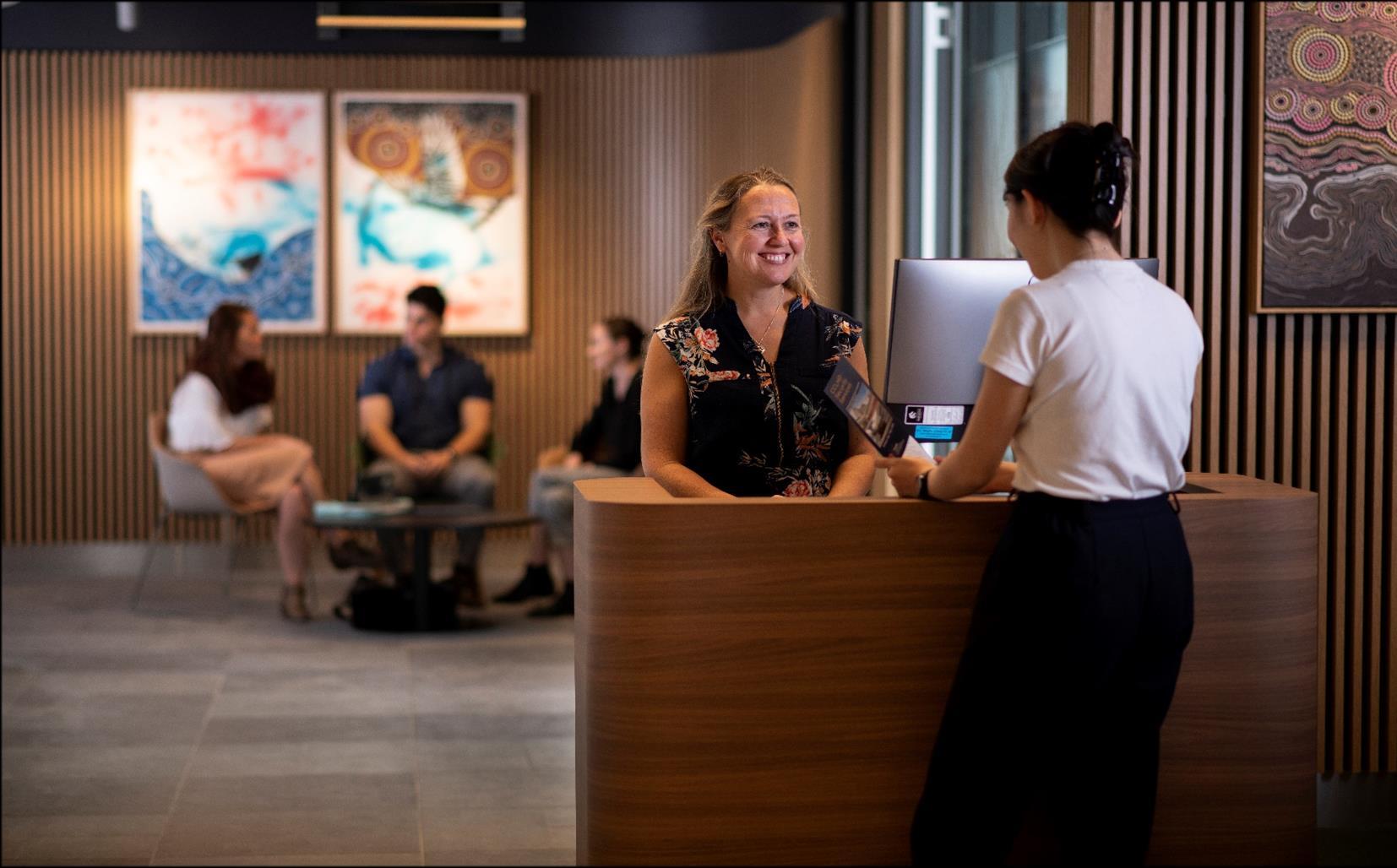
• ‘What would I say to the face of a student?’ Why some teachers are giving feedback via video | The Conversation
• Five steps to support autistic students on their higher education journey | THE Campus
• The dark side of AI’s promised efficiencies | THE Campus
• What’s really important in medical education | The Guardian
• Build students’ sense of belonging to build graduate skills | THE Campus
• LLMs get a medical education | Nature Medicine
• Three innovative authentic assessments to encourage soft skill mastery | THE Campus
• Uni Sim Revolutionizes Medical Training with Haptic and Virtual Reality | Mirage News
• Medical community cautious of using ‘lying ChatGPT’ | Korea Biomedical News
Want to submit a story, event or opportunity? Click here!
Upcoming Events
ACHIEVE Symposium
When: Friday October 20, 9:30am-4:00pm (AEST)
Where: Hybrid – Zoom and In-Person (MS202, Medical Sciences Building, Callaghan Campus, University of Newcastle)
Theme: Innovations in Interprofessional Education
Keynote Speaker: Professor Tim Wilkinson (University of Otago)
The first ACHIEVE Symposium will be held on Friday, October 20, 2023, from 9am-1pm and aims to invoke an interactive and educational experience with the theme ‘Innovations in Interprofessional Education’ . The event will take a hybrid approach with an in-person location for those who wish to attend the physical component and online options for those unable to make it to the venue. Our keynote speaker of the event, Professor Tim Wilkinson from the University of Otago, will kick off the event, sharing his personal experiences from the medical and educational fields. There will be an array of health professionals who will provide captivating insights through scheduled activities including panel discussion, lightning talks, Q&As and a skills workshop led by Professor Jane Bleasel (Head of School of Medicine and Public Health, University of Newcastle) on utilising ChatGPT to design multiple choice questions In addition to the interactive components, ACHIEVE is also excited to host the book launch of Professor Charlotte Rees’ (Head of School of Health Sciences, University of Newcastle) latest publication titled ‘Foundations of Health Professions Education Research: Principles, Perspectives & Practices’
We look forward to seeing you at the first ACHIEVE Symposium either in-person or via Zoom. A Zoom link will be provided closer to the date.
HPE Calendar
SEPTEMBER
September 19-21 | IHER – Medical College of Wisconsin Innovations in Healthcare Education Research
September 25-29 | UON HDR Student Festival
September 27 | ACHIEVE SEEK SessionFrom Feedback Novices to Feedback Ninjas
September 28 | Assessment Reform for the Age of Artificial Intelligence - TEQSA in association with CRADLE present the fifth webinar in the “Implications of Generative Artificial Intelligence for Higher Education” series.
OCTOBER
October 4-6 | MedEd on the Edge 2023
October 12 | Interprofessional Learning Simulation
October 12 | Alumni Excellence Awards 2023
October 13-15 | IMEC 2023
From Feedback Novices to Feedback Ninjas: Cultivating Feedback Literacy in Health Professions Education
–



ACHIEVE SEEK Session 3
When: Wednesday September 27, 12-1pm (AEST) Where: Zoom
Presented by Dr Miriam Grotowski
Higher Degree Research Student Festival – University of Newcastle
When: Monday – Friday, September 25-29
Where: Callaghan Campus, UON
Interprofessional Learning (IPL) Simulation
When: Monday & Tuesday October 9-10 –8AM Start
Where: Central Coast Clinical School, Gosford – G093.9.38
October 25 | ACHIEVE SEEK SessionRevolutionizing Assessment in Health Professions Education: Harnessing the Potential of E-Portfolios – A Case Study from Pharmacy
NOVEMBER
November 3 | PD+ Webinar - How to develop effective and successful strategic partnerships
November 12-15 | ANZPMEF 2023
November 29 | ACHIEVE SEEK Session –Nurturing Excellence: Mastering Effective Supervision in Clinical Practice Settings
Get Involved with ACHIEVE
As a Staff Member
Staff members who would like to join ACHIEVE will find many benefits in being a part of this network such as:
• Collaborative Research Opportunities: Connect with researchers, educators, and practitioners across diverse health disciplines to collaborate on ground-breaking research and scholarship projects that drive innovation in health professions education.
• Innovative Training Programs: Engage in cutting-edge training programs and workshops designed to enhance your knowledge, skills, and teaching methodologies, empowering you to deliver highquality education to future health professionals.
• Networking Events: Attend regular networking events, conferences, and symposia to connect with professionals from diverse backgrounds, fostering meaningful relationships, and expanding your professional network.
• Leadership Development: Access leadership programs and mentorship opportunities, empowering you to take on influential roles in shaping the future of health professions education and practice.
• Funding Support: Gain access to funding opportunities, grants, and scholarships for research projects, professional development, and training initiatives.
• Online Community: Utilise our user-friendly online platform, featuring discussion forums, resource libraries, and collaboration tools, enabling seamless communication and information sharing among members.
As a Student
Study Options
• Academy of Clinical Educators Certificate
• GP Certificate
• QuAlity
• Post-Graduate Certifications and Degrees
There are many avenues for students to be involved with ACHIEVE through the different study options that will be available.
Study opportunities such as the Academy of Clinical Educators and GP Certificates are currently available for prospective students, and we encourage anyone interested to contact us here for more information.
Stay tuned for more information about the upcoming Health Professions Education Post-Graduate certifications and degrees that will be available through the University of Newcastle
Work-Integrated Learning opportunities also exist for Marketing and Communications students to work with ACHIEVE in creating and distributing marketing materials There are also opportunities to be involved in event management with ACHIEVE for interested students.

(02) 4042 0667
ACHIEVE@newcastle.edu.au
https://www.newcastle.edu.au/research/centre/achieve
ACHIEVE Team
Director of ACHIEVE – Professor Bunmi Malau-Aduli
Head of School and Dean of JMP – Professor Jane Bleasel
Administration – Mr Kelsey Wheaton
Strategic Planning Committee
Lead – Professor Bunmi Malau-Aduli
Members – Professor Jane Bleasel, Professor Kichu Nair, Associate Professor Michelle Guppy, Professor Stuart Wark, Professor Jenny May
Education Committee
Lead – Professor Kichu Nair
Members – Professor Brian Jolly, Dr Tanmay Bagade, Dr Miriam Grotowski
Communication Committee
Lead – Professor Darrell Evans
Members – Dr Tanmay Bagade, Dr Susan Heaney, Ms Linda Grose
Research & Scholarship Committee
Innovative Teaching and Learning Approaches
Lead – Dr Richard McGee
Members – Dr Lauren Cone, Dr Eleonora Leopardi
Assessment and Feedback
Lead – Professor Stuart Wark
Members – Associate Professor Conor Gilligan, Dr Graeme Horton
Professionalism and Leadership
Lead – Dr Miriam Grotowski
Members – Dr Penelope Fotheringham, Professor Joerg Mattes
Graduate Outcomes
Lead – Dr Katie Wynne
Members – Associate Professor Marita Lynagh, Dr Julie Burrows, Associate Professor Michelle Guppy
Interprofessional Learning
Lead – Ms Simone Perry
Members –Dr Gary Crowfoot, Ms Joanne Walters, Dr Hemal Patel
